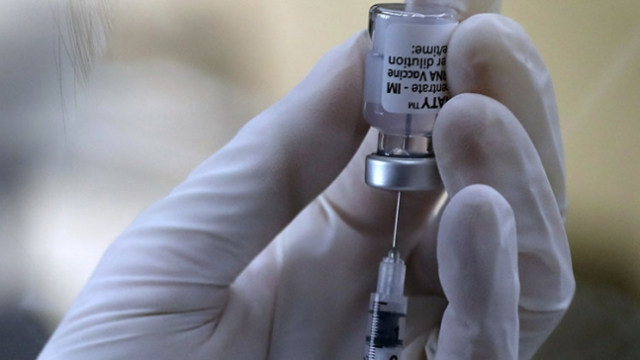Austria and others stick to their own share and refuse to give way to five desperate countries
Conflict with the UK is expected to intensify as’only UK invested in AZ vaccine European plant’
 viewer
viewer
The European Union (EU) did not show solidarity in the end over the issue of distributing vaccines for the novel coronavirus infection (Corona 19) between member states. Most member states have agreed to get more stocks to go to the five countries that are short of the vaccine, but some have said they will not give up their share.
According to Reuters, on the 1st (local time), the ambassadors of EU member states made such a conclusion on how the 10 million doses of the Pfizer vaccine will be distributed in the second quarter.
The EU usually distributes vaccines in proportion to the population of 27 member states. However, this time, 19 member states agreed to allocate more to five countries that lack vaccines, such as Bulgaria, Croatia, Estonia, Latvia and Slovakia. These five countries share an additional 2.85 million batches in addition to the proportional share of the population.
To this end, 19 countries, including Belgium, Denmark, and France, decided to receive a total of 6.66 million servings in proportion to the population of each country. It means that it will reduce its own share and give it to five more desperate countries in less than when 10 million batches were shared.
Croatian Prime Minister Andrei Plenković said in a statement that “Croatia will receive an additional 747,000 episodes.” Estonian Prime Minister Kayah Callas expressed his appreciation for EU solidarity and cooperation, saying that his country will receive an additional 62,000 servings.
However, the three countries, Austria, the Czech Republic and Slovenia, maintained their position that they could not reduce their distribution. Austria said that the Czech Republic is now in need of more vaccines due to the severe coronavirus situation, and that its country has rejected proposals from the rest of the member states to cooperate with the Czech Republic. In this regard, the dpa news agency reported that Austria proposed to deliver 30,000 doses of the Corona 19 vaccine to the Czech Republic on the 2nd.
Austrian Prime Minister Sebastian Kurz said, “If vaccination is too slow in some countries, the results are not good for everyone.” Earlier, Prime Minister Kurz called on the EU Commission to change the way vaccines are distributed in the region, claiming that some member states are receiving more than their fair share. Regarding Austria’s attitude, a European diplomat criticized the AFP news agency, saying, “Prime Minister Kurz abandoned five countries by showing a lack of solidarity,” and saying, “He is willing to abandon his allies.”
The EU, which is seldom speeding up vaccination, plans to accelerate in the second quarter and inoculate at least 70% of the adult population by July this year.
Meanwhile, the EU has not been able to resolve the conflict over the supply and demand of vaccines with the former member of the United Kingdom.
In particular, as it was revealed that only the UK funded the manufacturing plant of the AstraZeneca (AZ) vaccine, which the EU declared to cease exports to the UK for the time being, the nervous war between the two sides is expected to intensify.
The EU has criticized the UK for not supplying its AZ vaccine to the EU quickly enough. The UK has never stopped exporting vaccines.
Eventually, Thierry Breton, an EU internal market executive, affirmed in a media interview on the same day that it could not hand over a single portion to the UK until Europe secured all the AZ contracts.
However, the Dutch plant, which manufactures both AZ’s European and UK contracts, was able to operate thanks to large investments from the UK, Telegraph reported.
The British government promised to invest millions of pounds in the plant in April of last year, the newspaper quoted officials.
On the other hand, EU member states have admitted that they have not invested a single penny in the plant.
There are voices among British lawmakers that if the EU continues to stop exporting AZ vaccines, the investment should be returned.
Conservative Congressman Steve Baker warned, “Because the UK has invested in the plant, it has the right to receive a supply of vaccine under the contract,” he warned. “If the EU disagrees, there is an option to initiate legal proceedings.”
/ Reporter Kihyuk Kim [email protected]
< 저작권자 ⓒ 서울경제, 무단 전재 및 재배포 금지 >
